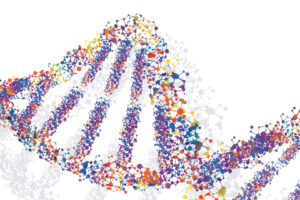 When Deborah Mozak was diagnosed with breast cancer, it had already spread to the lymph nodes in her underarm and neck.
When Deborah Mozak was diagnosed with breast cancer, it had already spread to the lymph nodes in her underarm and neck.
“She essentially had inoperable breast cancer when she was diagnosed,” says Bhavesh Balar, MD, a board-certified and fellowship trained hematologist and oncologist on staff at CentraState. “It was very locally advanced—no distant spread, but advanced to where it was inoperable.”
Less than a decade ago, Deborah’s cancer would have been difficult to treat with traditional chemotherapy. Today, targeted therapies that block the ability of cancer cells to grow and spread are providing new options for patients with certain types of previously inoperable breast cancers.
In Deborah’s case, these newer therapies have had remarkable results—from her original diagnosis of metastatic breast cancer to a very good possibility of a complete cure.
A Family History
Deborah, a 62-year-old Howell resident, was diagnosed with breast cancer after noticing a mass in her neck, which turned out to be a cancerous lymph node. A half-marathoner in otherwise good health, the diagnosis was especially difficult as a close family member had been diagnosed with an operable form of breast cancer earlier that same year.
“I know cancer runs in families, but this was just one thing after another,” Deborah says. “Thankfully, my family and friends offered a lot of support.”
Deborah began chemotherapy and targeted therapy with medications that block her type of breast cancer, HER2-positive, from growing.
“The cancer began to disappear in front of our eyes,” Dr. Balar says. “Cancer that was inoperable quickly became operable.”
In June, Deborah had lumpectomy surgery at CentraState to remove the cancerous mass from her right breast. The cancer that had spread to nearby lymph nodes was no longer detectable.
Moving Forward
For six weeks, Deborah underwent external beam radiation therapy with Neesha Rodrigues, MD, a board-certified radiation oncologist at CentraState.
“After a lumpectomy, radiation is the standard of care to target any microscopic cancer cells that may potentially remain,” Dr. Rodrigues says. “Radiation treatment significantly reduces the risk that cancer will come back in the breast and lymph nodes.”
Deborah says that throughout her treatment she tried to keep a positive attitude, and she and her doctors are hopeful that she will achieve a complete cure.
“I was very pleased with everyone at CentraState—they were all so caring and understanding,” Deborah says. “I never doubted that I was getting anything but the very best treatment.”
For more information about the Breast Cancer Program at CentraState, call 855-411-CANCER
(855-411-2262)





